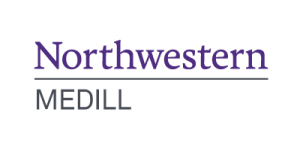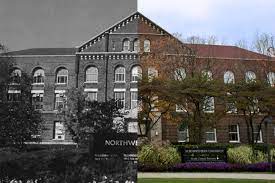 I have always had a love-hate relationship with my journalism education, which came from the Medill School at Northwestern University in 1977-78.
I have always had a love-hate relationship with my journalism education, which came from the Medill School at Northwestern University in 1977-78.
Back then Medill taught that journalists were people who worked for people who bought ink by the barrel. The analogy has shifted (bits by the petabyte) but the idea remains the same. Journalists work for others. We have no real control over their career path. We’re dependent.
I can understand that. It’s a comfortable feeling, getting a paycheck and ignoring the market. But I didn’t get to be my class’s last man standing on his beat by being dependent. I’m a freelance. I have defined my own coverage area, which is the future with a business orientation. Following the Medill career path would have had me out of this business decades ago.
 Despite this, journalists are my people. I come alive each time I go to an alumni event. Our minds work in the same way. Which leads me to offer this to young journalists, about what you should learn and how to make your way.
Despite this, journalists are my people. I come alive each time I go to an alumni event. Our minds work in the same way. Which leads me to offer this to young journalists, about what you should learn and how to make your way.
First, learn business. Don’t expect an employer to take care of you, to be on your side. They’re not. Journalism enterprises are run by businessmen, whose ethics are those of the market. They go right up to the edge of what’s legal, and often skip over it, because if they don’t their competitor will. Theirs are the names on the j-school building, men like Pulitzer and Medill and Annenberg. The “ethics” you’re taught, about the “Chinese wall” between business and your practice, is self-serving and bullshit. It’s a flag of convenience, meant to protect you but provide no protection from their predation of you.
That leads to the second lesson. Be your own brand. Define what you want to do and do that. Keep your eye on the main chance, on opportunities beyond your job that might still be interesting. Almost all successful journalists aren’t journalists. They’re writers.

Doing what you want, making that your business, focusing on storytelling, these will determine your success or failure in this business. It’s not a profession, it’s not even a trade. It’s a business.
In my first official lecture at Medill, the late George Heitz offered two bits of advice. The first was that if you want a good living find a spouse with a good job. (I proposed that evening, and we’ve been married 44 years.) The second was that if you want to make money, Northwestern has a business school right around the corner, and you’re invited to apply.
I have loved my career, but I wish I’d taken that second part of the lecture to heart. Every j-school program needs business courses because every journalist today is in business. A generation of ex-journalists has learned that lesson the hard way. Don’t keep pushing the lie.










